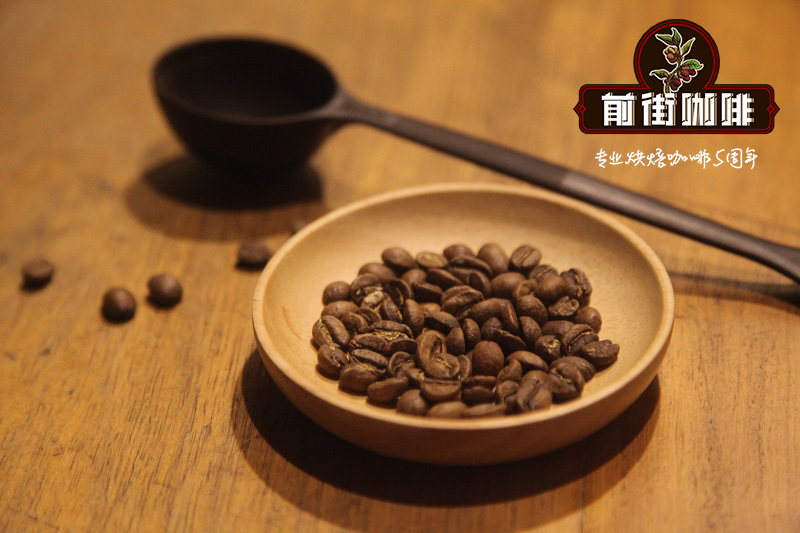Coffee feelings that can not come out of the coffee bean producing area of Kenya, a coffee-rich country in Africa.

Professional coffee knowledge exchange more coffee bean information please follow the coffee workshop (Wechat official account cafe_style)
Qianjie-Kenyan Coffee introduction
Kenya (kenya)
Kenya's upland washed Arabica beans are one of the best coffee in the world in terms of quality.
The coffee industry in Kenya is of good quality and consistent under the strict control of the Kenya Coffee Agency. Kenyan coffee is famous for its strong fruit flavor, with lemon and citrus acid aromas. Kenya is bordered to the north by Ethiopia, the origin of Arabica coffee trees, but it was not until the beginning of the 20th century that coffee cultivation began. In the 19th century, missionaries introduced Arabica trees from Yemen, but did not plant them in large quantities. It was not until 1893 that coffee was cultivated on a large scale after the introduction of Brazil's ancient bourbon seeds. That is to say, Kenyan coffee is of Brazilian origin. Due to the differences in water, climate and handling, the taste of Kenyan beans is very different from that of Brazilian beans.
Kenyan coffee trees are mainly concentrated on the slopes near Mount Kenya, about 4 to 6500 feet above sea level, which is the best height for coffee beans to develop their flavor, because the mountain temperature is lower, the growth is slower, and the aromatic components of coffee beans are fully developed. the acidity of the fruit is more obvious and the texture is harder. In addition, Kenya was an early British colony, and the British had established a set of perfect cultivation and quality control system. After the independence of Kenya, the coffee industry has made great strides on the existing basis, and has become the largest foreign exchange earning industry in Kenya.
Kenya beans must have a strict grading system. Coffee beans taken out by washing plants are divided into seven grades according to size, shape and hardness, the highest being AA or AA, followed by AB, PB, C, TT and T. This grading system is similar to Colombia, mainly in terms of particle size and shape, but it does not necessarily have the best flavor.
Close your eyes and think about it: now you are in a tropical African orchard, with ripe banana pineapples and all kinds of unnamed fruits, fragrant in the warm afternoon sun. Holding a cup of Kenya, such a strong fruit aroma always makes people feel like they are in an orchard.
One of the wonderful flavors brought by the fruity aroma is the bright acidity. Lemons, oranges, grapes, pineapples, strawberries-almost all fruits bring a little fresh acid, and Kenya is a collection of all the sour and bitter coffee, a cup of Kenya, you can feel the freshness and brightness of the fruit.
The smell of red wine.
Most of this comes from the Kenyan acid similar to the grape taste, coupled with the Kenyan deep taste and long aftertaste, it always makes people feel vaguely ripe red wine from beginning to end. Kenya is the only one that can really connect people with the aroma of red wine in the world's famous coffee.
In short: Qianjie is a coffee research hall, happy to share the knowledge about coffee with you, we share unreservedly just to make more friends fall in love with coffee, and there will be three low-discount coffee activities every month. The reason is that Qianjie wants to make more friends drink the best coffee at the lowest price, which has been Qianjie's tenet for 6 years!
END
Important Notice :
前街咖啡 FrontStreet Coffee has moved to new addredd:
FrontStreet Coffee Address: 315,Donghua East Road,GuangZhou
Tel:020 38364473
- Prev

Which origin of coffee beans is better? Essel coffee beans have unstoppable aroma.
Professional coffee knowledge exchange more coffee bean information please follow the coffee workshop (Wechat official account cafe_style) front street-Ethiopian coffee features the word coffee comes from the Ethiopian national place name Kaffa, a shepherd accidentally found wild coffee here, gradually, coffee spread all over the world. Ethiopia is the famous Arabica.
- Next

The coffee bean producing area of Africa is so worshipped by the Kenyan coffee beans, the implication of love in the Garden of Eden.
Professional coffee knowledge exchange more coffee bean information please follow the coffee workshop (Wechat official account cafe_style) front street-Kenya Coffee introduction Kenya coffee is mostly grown at an altitude of 1500Murray 2100m and is harvested twice a year. Its main feature is a distinct fruit aroma, the common fruit aroma is citrus. Kenyan coffee has a multi-layered taste and the acidity of juice.
Related
- Beginners will see the "Coffee pull flower" guide!
- What is the difference between ice blog purified milk and ordinary milk coffee?
- Why is the Philippines the largest producer of crops in Liberia?
- For coffee extraction, should the fine powder be retained?
- How does extracted espresso fill pressed powder? How much strength does it take to press the powder?
- How to make jasmine cold extract coffee? Is the jasmine + latte good?
- Will this little toy really make the coffee taste better? How does Lily Drip affect coffee extraction?
- Will the action of slapping the filter cup also affect coffee extraction?
- What's the difference between powder-to-water ratio and powder-to-liquid ratio?
- What is the Ethiopian local species? What does it have to do with Heirloom native species?

